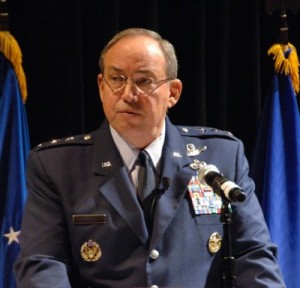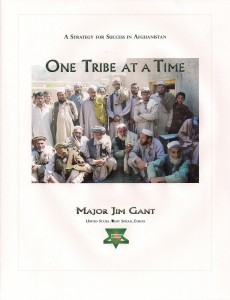

Chuck Spinney Sends….
Here are two opposing views on how to win in Afghanistan:
1. An Air Force general's view from the Top Down
2. Army Special Forces major's view from the bottom up

My comment: While I think the major is far closer to reality than the general, I would argue that the Pentagon, which is run by generals, does not have a clue how to go about executing the major's strategy, if they chose to do so — and they won't. But that might not matter, because, paradoxically, I think the major's excellent appreciation of the Afghan conundrum illustrates indirectly why we need to get out of Afghanistan asap.
There are at least two reasons why this is so:
First, the military has no clue how to execute the kind of strategy advocated by the major. That is why General McChrystal asked for a large increase in conventional troops. The surge just approved by the President shows (a) that the military is completely wedded to an approach that uses a large US footprint, centralized command and control, and a reliance on heavy firepower, like the AF general's predilection for bombing; and (b) the politicians are wedded to the concept that strengthening an already corrupt centralized Afghan gov't and Afghan national army and national police forces will “win the hearts and minds” of the rural population.
Note that the weakest parts of the major's excellent analysis occur when he tries to reconcile support of the Afghan central government and Afghan national army with his decentralized tribal strategy — they can not be reconciled except through tribal mediation processes that start a village level jirgas and slowly work upwards to “national” level loya jirga. But that traditional approach would result in a repudiation of the central gov't as it is now constituted.
Second. I am not sure there will ever be enough time to make his strategy work on a war-winning scale. As the major makes clear, we are struggling to deal with a culture that is based on profoundly important concepts of honor and revenge. Planners in Washington and Kabul are trying to shape the cultural DNA of a rural tribal society that is the product of a 3000 years of cultural evolution. This culture may seem primitive to strategists in Washington trying to export the our way of life (not the major, who clearly understands that strategy must be shaped by the mores of the Afghan culture), but this tribal culture is in fact a highly evolved in a complex relationship to its environment. The problem as I see it is that too much water has gone over the dam since we foolishly began trying to cynically manipulate the value systems of this tribal culture by inflating the Islamic crazies in late 1970s (with goal of making it more likely that Sov's would invade and enmesh the Sovs in their Vietnam-like quagmire).
Afghans, especially Pashtuns, understand how this happened, and they have long memories, as the major makes clear. To expect that we could induce the majority of Afghans to forget the past and support our alien presence, even if we executed with a well thought out tribal strategy, like that expressed by the major, is unrealistically optimistic. Moreover, finding and building up a large number of teams with leaders of the intellectual and moral qualities of this major is simply not going to happen in today's self-referencing, careerist military.
My basic point: the major may well have synthesized a strategy that would have worked, if we implemented it from the git go in late 70s. But since then, we have poured too much gasoline on the fire, and now we are facing a raging inferno. As a practical matter, I simply don't see how our leadership admit the strategic errors of the past and shift strategies now, and then evolve a domestic political consensus to stay long enough in Afghanistan for the local Pashtun forget the insults, humiliations, and wanton killing we have been responsible for. Their memories are simply too long: Never forget, the Pashtuns are still proud of the fact that they forced Alexander the Great to pay protection money so he could safely exit Afghanistan thru the Khyber Pass — and General McChrystal has admitted we have lost the initiative, we are already paying protection money to insurgents to secure the movement of our supply convoys the same pass, and the AF general bombs away.
Chuck Spinney
Phi Beta Iota: Afghanistan is a quagmire where everyone win except the USA. Our enemies fundamental objective is to cause us to be spread too thin, and we insist on starting every elective war in precisely that way: spread too thin and without doing our homework.



